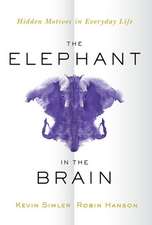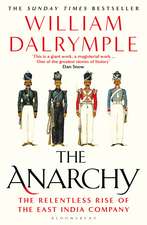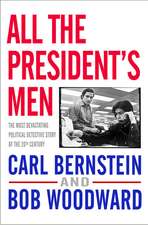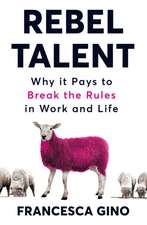The Ascent of Money: A Financial History of the World
Autor Niall Fergusonen Limba Engleză Paperback – 3 iul 2019
From the banking dynasty who funded the Italian Renaissance to the stock market bubble that caused the French Revolution, this is the story of booms and busts as it's never been told before.
With the world in the grip of the biggest financial crisis since the Great Depression, there's never been a better time to understand the ascent - and descent - of money.
'Beautifully written ... Breathtakingly clever'Sunday Telegraph
'A lucid and racy account of financial history'New Statesman
'A fine, readable and entertaining history' Dominic Sandbrook,Daily Telegraph, Books of the Year
'The tales he tells of boom and bust, of triumph and disaster, of bubbles that inflate ... are the very essence of financial history' Bill Emmott,Financial Times
'An often enlightening and enjoyable tour through the underside of great events, a lesson in how the most successful great powers have always been underpinned by smart money' Robert Skidelsky,New YorkReview of Books
| Toate formatele și edițiile | Preț | Express |
|---|---|---|
| Paperback (2) | 81.50 lei 21-33 zile | +31.55 lei 6-12 zile |
| Penguin Books – 3 iul 2019 | 81.50 lei 21-33 zile | +31.55 lei 6-12 zile |
| Penguin Books – 30 sep 2009 | 114.46 lei 3-5 săpt. | +19.18 lei 6-12 zile |
Preț: 81.50 lei
Preț vechi: 96.17 lei
-15% Nou
15.59€ • 16.28$ • 12.91£
Carte disponibilă
Livrare economică 14-26 martie
Livrare express 27 februarie-05 martie pentru 41.54 lei
Specificații
ISBN-10: 0141990260
Pagini: 560
Ilustrații: 16 pp colour inset, integrated b/w
Dimensiuni: 129 x 198 x 24 mm
Greutate: 0.41 kg
Editura: Penguin Books
Colecția Penguin
Locul publicării:London, United Kingdom
Notă biografică
Niall Ferguson is one of Britain's most renowned historians. He is the Milbank Family Senior Fellow at the Hoover Institution, Stanford University, a senior faculty fellow of the Belfer Center for Science and International Affairs at Harvard, and a visiting professor at Tsinghua University, Beijing. He is the author of fifteen books, including The Pity of War, The House of Rothschild, Empire, Civilization and Kissinger, 1923-1968: The Idealist, which won the Council on Foreign Relations Arthur Ross Prize. He is an award-making filmmaker, too, having won an international Emmy for his PBS series The Ascent of Money. His many other prizes include the Benjamin Franklin Prize for Public Service (2010), the Hayek Prize for Lifetime Achievement (2012) and the Ludwig Erhard Prize for Economic Journalism (2013). He writes a weekly column for the Sunday Times, for which he was named Columnist of the Year at the 2018 British Press Awards.
Descriere
Bread, cash, dosh, dough, loot. Call if what you like, it matters now more than ever. In The Ascent of Money, Niall Ferguson shows that financial history is the back-story to all history.
From the banking dynasty who funded the Italian Renaissance to the stock market bubble that caused the French Revolution, this is the story of booms and busts as it's never been told before.
With the world in the grip of the biggest financial crisis since the Great Depression, there's never been a better time to understand the ascent - and descent - of money.
'Beautifully written ... Breathtakingly clever' Sunday Telegraph
'A lucid and racy account of financial history' New Statesman
'A fine, readable and entertaining history' Dominic Sandbrook, Daily Telegraph, Books of the Year
'The tales he tells of boom and bust, of triumph and disaster, of bubbles that inflate ... are the very essence of financial history' Bill Emmott, Financial Times
'An often enlightening and enjoyable tour through the underside of great events, a lesson in how the most successful great powers have always been underpinned by smart money' Robert Skidelsky, New York Review of Books
Recenzii
-The Wall Street Journal
"[An] excellent, just in time guide to the history of finance and financial crisis."
-The Washington Post
" Shrewdly anticipates many aspects of the current financial crisis, which has toppled banks, precipitated gigantic government bailouts and upended global markets."
-Michiko Kakutani, The New York Times





























